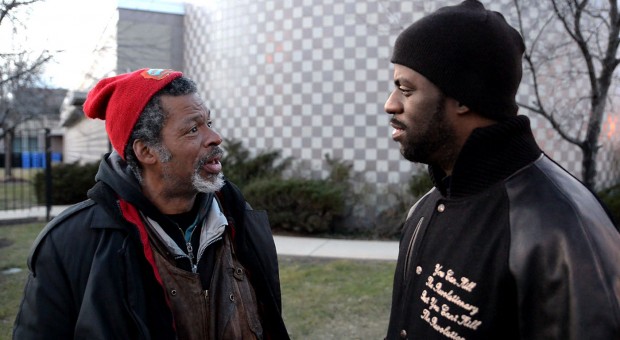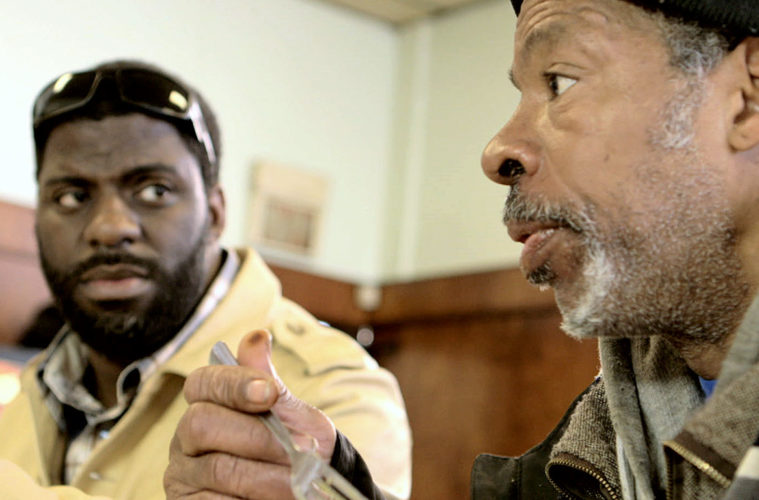Amongst the national conversation we’re having about race is a topic a topic often glossed over amongst the conservative talking point of “accountability.” Yes, there are fathers who lie, cheat, steal, break the law, go to jail, abuse drugs, and the sort. Breaking the cycle of poverty is critical: a generation of men are lost to the system, either in prison or dead, thus repeating the cycle. Amongst those who broke the cycle and is mentoring young men to do so as well is Che “Rymefest” Smith perhaps best known on mainstream radio for writing Kayne West’s Jesus Walks and most recently for the Oscar-winning song Glory from Selma.
Based in Chicago, he discovers his childhood home is on the market and decides to purchase and fix it up for his family, including wife Donnie and children they hope to have. Haunting his past is previous mistakes including a paternity battle with a women whom he has doubts about; this of course represents the irony of the struggle: he works to mentor fatherless youth while potentially ignoring his own child until the paternity test is in. In purchasing the house, Che struggles with a desire to reconnect with his father and few phone calls later he discovers his father Brian is living on the streets. Coordinating a series of meetings, he initially keeps his father at a distance, compartmentalizing his feelings.

Directed in its approach, directors Ricki Stern and Annie Sundberg — whose body of work includes the American photo-journalist in Darfur documentary The Devil Came on Horseback, the portrait Joan Rivers: A Piece of Work and The Trails of Darryl Hunt, about a wrongfully convicted African American male caught in a disturbing endless loop of prosecution — have made a useful conversation starter. Touching, moving and inspiring, what follows is a rocky road for Brian as he struggles to remain clean. Chronicling the system he finds himself in, including a kind of homeless half-way home dormitory designed to help him clean himself up, find a job and get healthy, he’s then able to transition to his very own one-bedroom apartment with the help of Che. The road is frequently bumpy with a tension between father and son as Brian is tempted to relapse, knowing this Che regulates his distance depending upon the situation. Che himself is a third director of sorts, shooting footage in advance of Stern and Sundberg’s involvement and he turns to cell phone video for a rough encounter later in the story.
The need to document the intimate process of rehabilitation is useful and intrusive at times. During the encounter in question one has to wonder why he keeps filming — perhaps to show his father later. Still, the moment remains difficult for us as Stern and Sudberg’s objectivity lead us to have a deep sympathy for both father and son. Made with an intense commitment to showing this reconciliation process amongst father and son, it mirrors the work Che Smith does in his radio show and within his community. He gives an young aspiring, fatherless kid using rap as a means of exploring his angst his number and tells him to call anytime. Not free from sin, In My Father’s House is a brave, personal, introspective exploration of a phenomenon that has no easy solution.
In My Father’s House screened at the Montclair Film Festival and is currently seeking distribution.

